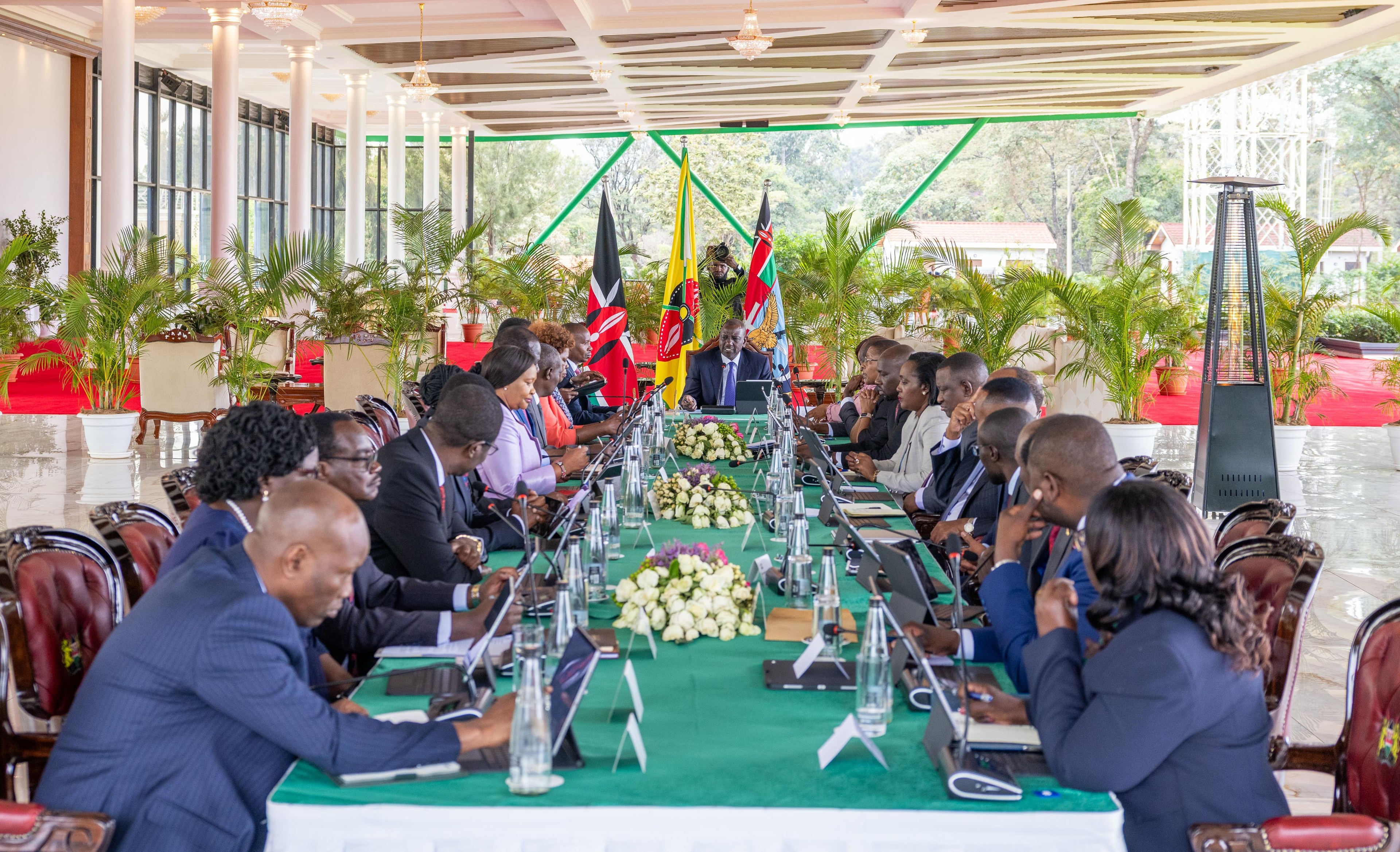Girls out there also need sanitary pads dispensers just like Condom dispensers! An 18-year-old girl Mercy* said during celebrations of the Day of the Girl Child.
The celebrations were held at the Canadian Embassy in partnership with Journalists for Human Rights in Nairobi on Wednesday.
Day of the Girl Child is held every October 11, focussing on the challenges girls face and promoting their empowerment.
“Girls are not respected in this society. They get pregnant because of poverty. If they cannot buy pads then how do you want them to access it?” Mercy asked.
She said as long as the girls can't access the sanitary towels then they are prone to fall into the tricks of rogue men.
“The way in toilets we have condoms, we should have female pads dispensers, this can cure this issue of a girl having sex for pads. For that girl who has heavy menses they use many pads about three which cost over Sh200,” she said.
One single pad costs around Sh85.
The National Government under the National Government Affirmative Action Fund is mandated to distribute free sanitary towels nationwide to adolescent girls who are enrolled in public schools.
The Treasury allocated Sh940 million budgetary allocation for sanitary pads. The Basic Education Fund Act states that these pads and dignity kitties be issued for free.
HER JOURNEY
Mercy (not her real name) says she gave birth when she was only 16 years old and was in form two.
“I was lucky my mother took me back to school. But remember I did not give birth alone, many of my friends were chased away by their parents because they gave birth. This has led to trauma. You can imagine a 16-year-old getting married,” she said.
Mercy says the man who made her pregnant lied to her only for him to disappear.
“He is a deadbeat father. He left and said he would be back only to go back to school and leave me behind,” she said.
“I did not get pregnant because I wanted to get pregnant. But many things that lead to girls having sex are poverty and sexual curiosity.”
Mathare subcounty children's officer at the Directorate of Children's Services Annisiah Ireri said they receive many cases of Gender-based Violence and teenage pregnancies.
“We take the cases as they come. We record and investigate them but we also try and conduct education and community sensitisation,” she said.
“We have serious issues of poverty and it boils down to such issues as teenagers getting involved in sexual activities, early marriages.”
According to the Kenya Demographic and Health Survey released in July 2023, 15 per cent of women aged 15–19 have ever been pregnant; 12% have had a live birth, 1% have had a pregnancy loss, and 3% are pregnant with their first child.
SEX SHOULD NOT BE A TABOO
Mercy being part of these statistics says sex needs to stop being a taboo in Kenya.
“We need to have the conversation about sex to empower the girl child. The government can also put safe spaces where they can get the information they need to stop them from going astray,” she says.
She says she was lucky to get a supportive mother but notes that life begins at motherhood.
“Sometimes we do not have child care. The government needs to provide baby care for the girls who have given birth. Who will the girls leave their children with if we do not have baby care even in schools,” she asked.
According to the UN, adolescent girls have the right to a safe, educated, and healthy life, not only during these critical formative years but also as they mature into women.
The 2030 Agenda for Sustainable Development and its 17 Sustainable Development Goals adopted by world leaders in 2015, embody a roadmap for progress that is sustainable and leaves no one behind.
She says the government needs to put policies that can help the girl child overcome challenges.
“What if we empower the girl child and tell them about contraceptives? You can go to a hospital, and the doctor will refuse to give you the contraceptive," she said.
"They will insult you and you will end up getting pregnant and dropping out of school. For girls to overcome all this, they should access quality healthcare. Change begins with you and me.”
According to the KDHS survey, among sexually active unmarried women aged 15–49, 70% use a contraceptive method.
Greenland Girls school co-founder Purity Gikunda said that as much as the government speaks about 100 per cent transition to schools it’s not a rosy walk for the girls who give birth.
“If we keep losing 300,000 girls per year to teenage pregnancy, we will not have women leaders,” she says.
Greenland girls' school only has teen mothers. There are around 150 teen mothers in that school which Is located in Kajiado County.
She said teenage pregnancy is a menace and that the government needs to put policies that can elevate girls.
WAY FORWARD?
Canadian Embassy’s counsellor of political Affairs to Kenya Warren Mucci said the talk on Girls rights should not be told without having to also think about the boy child.
“Engaging men and boys as stakeholders and partners is an important strategy for achieving gender equality and the empowerment of all the society,” he said.
“We must also challenge social norms and gender stereotypes that limit opportunities for women and girls and restrict men and boys to specific roles.”
In Kenya, nominated Senator Gloria Orwoba has drafted a Sanitary Towels Provision Bill which seeks to end period poverty in Kenya through offering free sanitary towels.
In her Bill, she says period poverty is a common challenge plaguing women globally making some of them unable to attend schools or work as a cause of a lack of funds for sanitary products that is both a health risk and a signal of gender inequity.
She is seeking sanitary products to be obtained on time, consistently, and in a way that respects the dignity of concerned persons.
The Bill is still in Parliament.











![[PHOTOS] Ruto present as NIS boss Noordin Haji's son weds](/_next/image?url=https%3A%2F%2Fcdn.radioafrica.digital%2Fimage%2F2025%2F11%2Ff8833a6a-7b6b-4e15-b378-8624f16917f0.jpg&w=3840&q=100)

